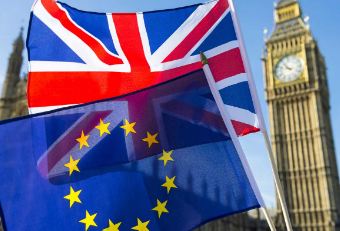The relationship between the United Kingdom and the European Union, once defined by deep integration, has undergone a profound transformation in the aftermath of Brexit. Since formally exiting the EU in January 2020, the UK has charted its course as an independent sovereign state, no longer tethered to the EU’s economic, legal, or political structures. Yet despite the formal separation, the fates of Britain and the EU remain inextricably linked—by geography, trade, security, and shared global challenges.
Post-Brexit relations have been turbulent. The early years were marked by friction over trade protocols, particularly in Northern Ireland, and regulatory divergence that led to economic and political uncertainty. The Northern Ireland Protocol became a flashpoint, reflecting deeper tensions between preserving the Good Friday Agreement and enforcing the integrity of the EU single market. These early conflicts highlighted the growing pains of a new and more distant relationship between former partners.
However, time has also brought a degree of pragmatism. In 2023, the Windsor Framework helped ease tensions over Northern Ireland, offering a more balanced approach to customs and regulatory checks. This agreement was not just a diplomatic achievement—it was a necessary step toward rebuilding trust and cooperation between London and Brussels.
On trade, the UK remains one of the EU’s most important partners, despite no longer being part of the single market or customs union. The EU is the UK’s largest trading partner, accounting for nearly half of its exports and imports. Meanwhile, the UK is the EU’s third-largest trading partner. While new bureaucratic hurdles and regulatory differences have emerged, businesses on both sides have adjusted, albeit at a cost. Going forward, there is a growing consensus among UK businesses and some policymakers for more streamlined cooperation, if not closer alignment, in key sectors like financial services, energy, and data protection.
In terms of foreign policy and security, the UK and EU face a common set of challenges: Russia’s aggression in Ukraine, instability in the Middle East, cyber threats, and the rise of authoritarianism. These shared concerns have revived conversations about strategic cooperation. Though the UK chose not to be part of the EU’s Common Security and Defence Policy, it continues to work closely with European allies through NATO and ad hoc coalitions. There is growing momentum for deeper collaboration on intelligence-sharing, counterterrorism, and defence technology.
Migration and climate change represent other domains where UK-EU cooperation is crucial. Both sides understand that solutions to transnational issues cannot be addressed in isolation. Recent agreements on channel crossings and energy transition demonstrate that, while divorced institutionally, the UK and EU remain bound by mutual interests and values.
In conclusion, UK-EU relations have entered a new phase—not one of integration, but of managed separation and selective cooperation. The challenge now is to shift from reactive diplomacy to a more structured and forward-looking partnership. Brexit may have ended a political union, but it cannot dissolve centuries of interdependence. A mature, constructive relationship is not only possible—it is essential for the future stability and prosperity of both the UK and Europe.

















